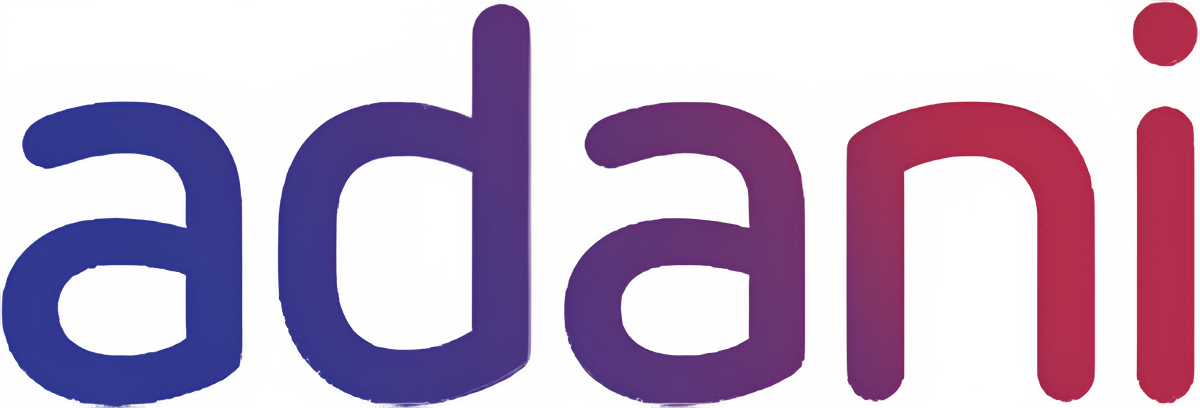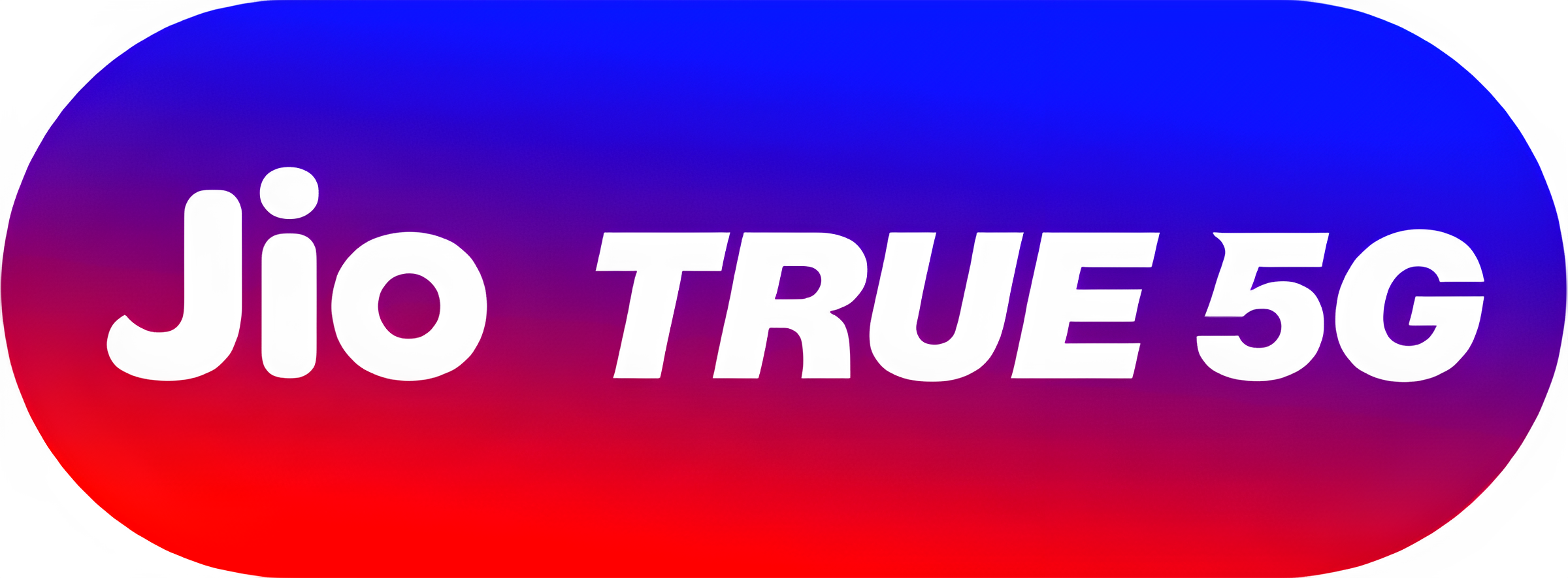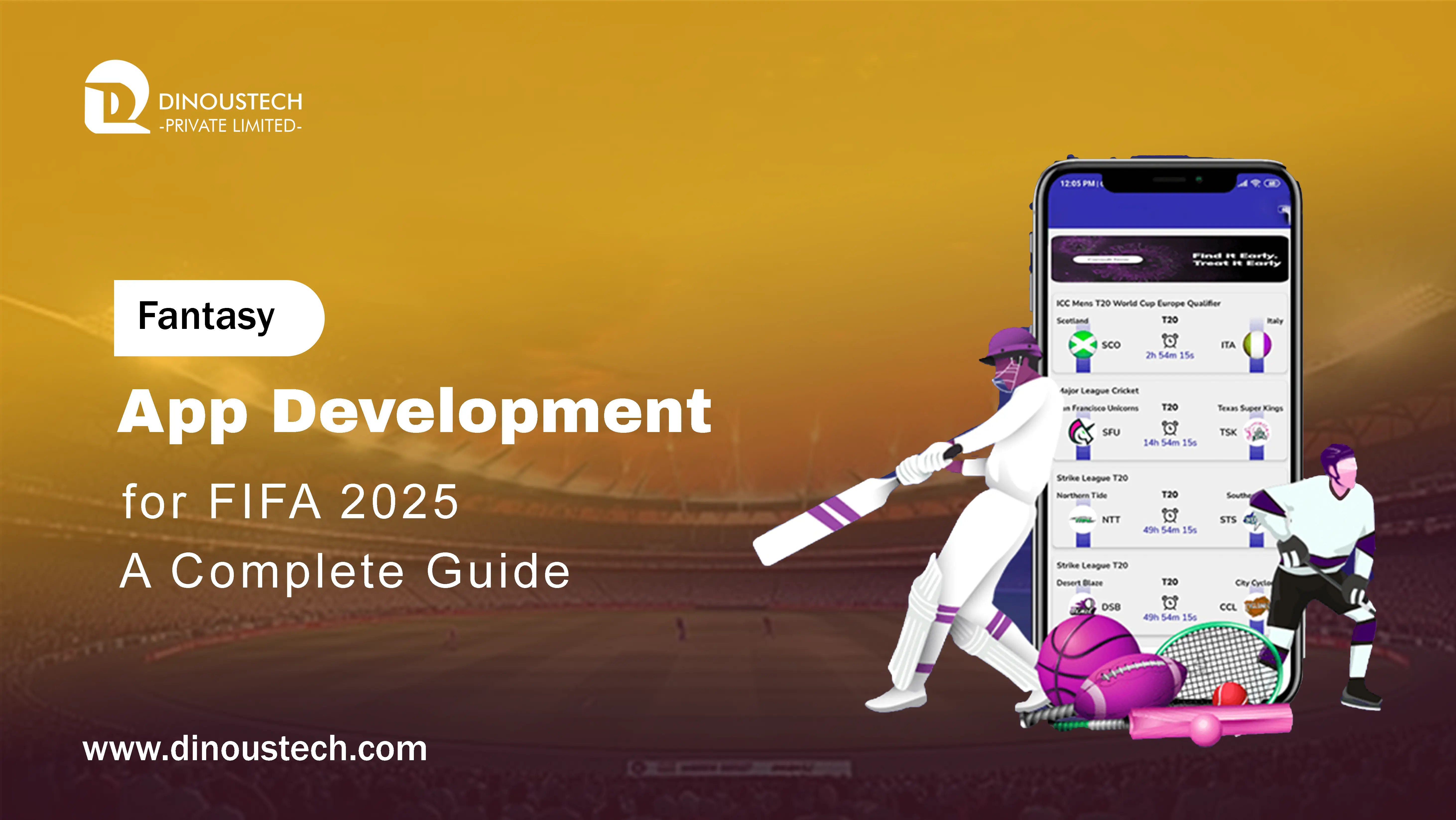Fantasy App Development for FIFA 2025: A Complete Guide
The FIFA World Cup is the pinnacle of international soccer, and with each tournament comes a surge in fan engagement. As the excitement builds towards FIFA 2025, millions of fans around the globe will seek ways to immerse themselves in the action. A Fantasy FIFA World Cup app offers an interactive avenue for supporters to form virtual teams, track player performances, and compete against friends. For developers, this represents a lucrative opportunity: by partnering with a fantasy app development company, one can craft a platform that heightens fan engagement and drives revenue.
At Dinoustech Private Limited, recognized as a best fantasy sports app development company, we understand the complexities of building a robust fantasy platform. From sleek design enabled by an affordable web designing company to scalable backend architecture delivered by a best software development company, our end-to-end expertise ensures that your Fantasy FIFA World Cup app meets the demands of avid soccer enthusiasts.
The Rising Popularity of Fantasy Sports and the FIFA World Cup
Fantasy sports have become a global phenomenon, allowing fans to act as team managers, draft players, and accumulate points based on real-world performance. When applied to the FIFA World Cup, a fantasy app can elevate fan interaction, encouraging viewers to follow multiple matches, research player statistics, and stay tuned throughout the tournament. High-volume search queries such as “FIFA World Cup fantasy league,” “fantasy FIFA 2025,” and “World Cup fantasy app” reflect significant market demand. As smartphones become ubiquitous, especially in soccer-loving regions like Europe, South America, and parts of Asia, the potential user base is vast. For businesses looking to capitalize, partnering with a fantasy app development company that specializes in sports platforms ensures both technical excellence and a deep understanding of fan behaviour.
Essential Features of a FIFA Fantasy App
A successful Fantasy FIFA World Cup app hinges on delivering an engaging and seamless experience. First, users expect a fluid onboarding process where they can quickly register using social media or email, create a profile, and join or create leagues with friends. A comprehensive player database—updated in real time with rosters, statistics, and injury reports—allows users to make informed decisions. Intuitive drafting interfaces let participants select their squad within budget constraints, mirroring real managers experiences.
Scoring systems are central: points should be allocated for goals, assists, clean sheets, saves, and other match events. To keep engagement high, live score updates and push notifications alert users to critical in-game moments, such as a star striker scoring a late winner or a defender receiving a red card. Leaderboards showcase top performers in various leagues, fostering healthy competition. Additionally, social features—such as in-app chat or forums—enable users to discuss tactics, trade players, and share insights.
For administrators, the backend must support league management, automatic scoring, and payout distribution for paid contests. Customizable rules—such as head-to-head matchups, multipliers for captain picks, and dynamic budget adjustments—cater to diverse user preferences. Dinoustech’s developers, recognized as a best software development company, ensure that these features integrate seamlessly, offering both reliability and scalability as user traffic peaks during matches.
Designing an Engaging User Experience
A Fantasy FIFA World Cup app lives and dies by its user interface and experience. An affordable web designing company collaborating with Dinoustech’s UX/UI team would craft visually compelling screens that reflect the excitement of the tournament—vibrant team colors, high-resolution player images, and dynamic animations that celebrate big plays. The homepage might highlight upcoming fixtures, trending players, and hot topics in a carousel format. Clear calls to action—like “Join a League” or “Draft Your Team”—guide users through key steps without overwhelming them.
Navigation should be intuitive: a bottom tab bar could feature icons for Home, My Team, Leagues, Live Scores, and Profile. Within the “My Team” section, draggable elements allow users to swap players, adjust formations, and view detailed player stats. During live matches, a “Live” tab provides real-time updates, animated scoreboard widgets, and commentary highlights. Performance optimizations—such as lazy loading of images and code splitting—ensure that even mid-match, the app remains responsive.
Accessibility is also crucial. Color-contrast settings, scalable text sizes, and screen-reader compatibility accommodate a wider range of users, including those with visual impairments. Localization features—translation of content into multiple languages—ensure that soccer fans worldwide feel at home. By focusing on seamless UX and engaging UI, Dinoustech’s team ensures that users spend more time interacting with the app and less time struggling with confusing menus.
Selecting the Right Technology Stack
Building a high-performance fantasy sports app requires a carefully chosen technology stack. On the frontend, cross-platform frameworks like React Native or Flutter enable simultaneous development for iOS and Android, reducing time to market while providing near-native performance. Native modules—Swift for iOS and Kotlin for Android—handle platform-specific features like push notifications and local storage, ensuring reliability during peak usage.
The backend hinges on scalable, microservices-based architectures. Node.js combined with Express, or Python with Django, serves as the core framework for RESTful APIs. A NoSQL database such as MongoDB efficiently stores dynamic data like user profiles, league configurations, and real-time player stats. For relational data, such as transactional records of paid contests, PostgreSQL or MySQL offers ACID compliance. To handle real-time updates, WebSocket implementations or managed services like Firebase Realtime Database ensure low-latency communication, which is crucial for live scoring and push notifications.
Deploying on cloud platforms—AWS, Google Cloud, or Azure—enables autoscaling to meet fluctuating demands, especially during high-traffic matchdays. Containerization via Docker and orchestration with Kubernetes ensures fault tolerance and easy rollbacks. Content Delivery Networks (CDNs) distribute static assets—images, client-side scripts—across global nodes, minimizing load times. Dinoustech’s architects, lauded as a best software development company, configure these services to deliver a reliable and future-proof platform.
Integrating Real-Time Data and APIs
User engagement in a Fantasy FIFA World Cup app depends on accurate, up-to-date data. Integrating with trusted sports data providers—such as Opta, Sportradar, or local equivalents that cover FIFA 2025 qualifiers and friendlies, is essential. These data feeds offer granular player statistics: goals, assists, minutes played, shots, passes, and defensive actions. With live APIs, the app ingests this data continuously, updating player performance metrics and leaderboards in real time.
Push notification services—via Firebase Cloud Messaging or OneSignal—inform users of in-game events that affect their teams. For example, if a user’s captain scores a brace, an instant alert can trigger, prompting excitement and encouraging social shares. Geolocation APIs can also offer tailored content, pushing match reminders based on local kickoff times and timezone settings.
For monetization and analytics, integration with payment gateways, Stripe, PayPal, or regional options, facilitates entry fees for paid contests. Analytics platforms like Google Analytics for Firebase or Mixpanel track user behavior: time spent drafting teams, engagement with live scores, and conversion rates for in-app purchases. By leveraging these integrations, Dinoustech’s developers ensure that the app remains both engaging and profitable.
Monetization Strategies for Fantasy Apps
A Fantasy FIFA World Cup app can generate revenue through several channels. The most common model is entry fees for paid contests. Users pay to join private or public leagues, with prize pools distributed to top performers. This model requires secure, transparent handling of payments and payouts, reflecting a robust platform built by the best software development company.
Subscription models offer premium features—ad-free experience, early access to draft picks, or enhanced analytics—on a monthly or seasonal basis. Affiliations with sports merchandise retailers or ticket vendors provide affiliate commissions when users purchase jerseys, match tickets, or memorabilia through in-app links.
In-app advertising—if integrated judiciously—can supplement income. For example, non-intrusive banner ads promoting FIFA World Cup travel packages or local sports bars cater to the app’s audience. Sponsorships from sports brands, such as official league partners, can yield direct sponsorship revenue; branded challenges or co-branded promotions during tournament phases increase brand visibility and app monetization.
Finally, data-driven insights, such as anonymized user engagement metrics, can be packaged into market research reports sold to advertisers and sports analysts. Dinoustech’s financial strategists guide clients in selecting the right mix of these monetization streams to maximize revenue while preserving a high-quality user experience.
UX/UI Best Practices for Sports Fantasy Apps
The dynamic nature of sports makes UX and UI design critical for retention. An affordable web designing company working with Dinoustech’s UX experts ensures that the visual style reflects the passion of the FIFA World Cup. High-resolution team crests, vibrant match wallpapers, and animated transitions between screens build excitement. Consistent branding—using colors reminiscent of the official FIFA palette—reinforces the World Cup theme, immersing users in the tournament spirit.
Key UI components include an interactive draft interface with drag-and-drop player selections, auto-suggest lists for popular players, and budget indicators displaying remaining funds. Live match widgets—featuring rotating player avatars, real-time score updates, and poll widgets (“Who will score next?”)—encourage users to stay within the app even during match lulls.
Accessibility remains a priority: high-contrast color combinations, scalable text, and clear iconography ensure that viewing live data and stats remains easy under varied lighting conditions, whether a user is watching a match on TV or outdoors. Touch targets for mobile screens must be generous, accommodating quick taps while users are multitasking. Dinoustech’s design team conducts usability studies with soccer fans to refine these elements, ensuring intuitive navigation and engaging interfaces.
Development Process and Agile Methodology
Creating a premier fantasy sports app demands a structured yet flexible development approach. Dinoustech adopts Agile methodologies, starting with discovery workshops to define app objectives, target audience personas, and key performance indicators (KPIs). User stories capture critical flows—registering for a league, drafting a team, tracking live scores, and interacting with leaderboards.
Design sprints produce wireframes and prototypes, validated quickly with focus groups of soccer fans. Feedback loops refine the visual hierarchy and feature set before writing production code. Development sprints—each spanning one to two weeks—deliver incremental features: authentication and user profiles in Sprint 1, core drafting mechanics in Sprint 2, live score integrations in Sprint 3, and monetization modules in Sprint 4.
Continuous integration and continuous deployment (CI/CD) pipelines automate testing and deployment. Automated unit tests cover essential functions—score calculations, budget constraints, and API endpoints—while integration tests ensure that live data flows seamlessly from sports data providers to the app. Penetration testing and performance profiling reveal bottlenecks before the public launch.
User acceptance testing (UAT) during a closed beta phase, often with a select group of soccer enthusiasts, provides final validation. Performance tuning—server autoscaling rules, database indexing changes, and CDN configurations—ensures that the app can handle millions of concurrent users on matchday. Post-launch, Dinoustech’s maintenance teams monitor logs, address bug reports, and roll out timely updates ahead of the FIFA 2025 kickoff.
Marketing and User Acquisition Strategies
Successfully launching a Fantasy FIFA World Cup app requires a robust marketing strategy. App Store Optimization (ASO) targets high-search-volume keywords like “FIFA World Cup fantasy,” “World Cup fantasy league,” “soccer fantasy app,” and “FIFA 2025 fantasy.” Compelling app icons, screenshots showing dynamic draft boards and live score widgets, and concise, keyword-rich descriptions improve visibility in the App Store and Google Play.
Social media campaigns on Facebook, Instagram, and Twitter leverage official FIFA hashtags and trending topics. Partnering with soccer influencers—sports commentators, former players, and popular soccer vloggers—builds credibility. Hosting live giveaways, such as free entry to premium leagues or official World Cup merchandise, drives downloads and engagement.
Content marketing on a custom website development company portal—Dinoustech’s own site—focuses on blog posts like “Top 10 Tips for Fantasy FIFA 2025 Success,” “How to Draft the Perfect World Cup Team,” and “Analyzing Player Statistics for Fantasy Points.” SEO strategies target search terms like “best FIFA World Cup fantasy app” and “FIFA 2025 squad tips,” driving organic traffic.
Email campaigns nurture early sign-ups with exclusive offers—early access to private leagues, discounted premium subscriptions, or personalized drafting advice. Push notifications remind users to finalize their drafts before kickoff and update them on in-game performance. Referral programs incentivize users to invite friends, offering premium features or in-app currency for each successful referral. Dinoustech’s marketing experts analyze campaign performance, iterating messages, creatives, and channel allocations to maximize ROI.
Post-Launch Maintenance and Continuous Improvement
Launching the app is only the beginning; ongoing maintenance and enhancements are vital for sustained success. Dinoustech’s support teams monitor performance metrics—concurrent user counts, API response times, and error rates—using tools like New Relic or Datadog. Real-time alerts trigger when thresholds (e.g., CPU usage or database connections) exceed safe limits, enabling rapid remediation.
User feedback—gathered via in-app surveys and app store reviews—guides the product roadmap. Feature requests may include deeper analytics (e.g., expected fantasy points per player), social sharing options for standout lineups, or integration with live streaming platforms. Security patches and third-party library updates protect user data and ensure regulatory compliance.
As the FIFA 2025 tournament progresses, the app’s AI-driven recommendation engine can refine player picks based on ongoing match data, injuries, and form. Post-tournament, a debrief feature allows users to review final standings, analyze season-long performance, and prepare for future events, such as the Women’s World Cup or continental championships. Continuous A/B testing—comparing UI changes or new features—helps identify what resonates most with users. Dinoustech’s multidisciplinary teams ensure that the app evolves alongside user expectations and emerging technologies.
Conclusion
Developing a Fantasy FIFA World Cup app for the 2025 tournament presents a prime opportunity to engage global soccer audiences and build a profitable business. Key elements include an intuitive user experience, crafted in partnership with an affordable web designing company, and a robust, scalable backend, engineered by a top software development company. As a fantasy app development company and best mobile app development company, Dinoustech Private Limited offers end-to-end expertise: from dynamic AI-driven player suggestions to real-time live scoring, secure payment processing, and relentless post-launch support. With the right technology stack, marketing strategy, and continuous improvement process, your Fantasy FIFA World Cup app can capture the spirit of the global game, foster vibrant communities, and drive lasting engagement before, during, and after the 2025 tournament.

















